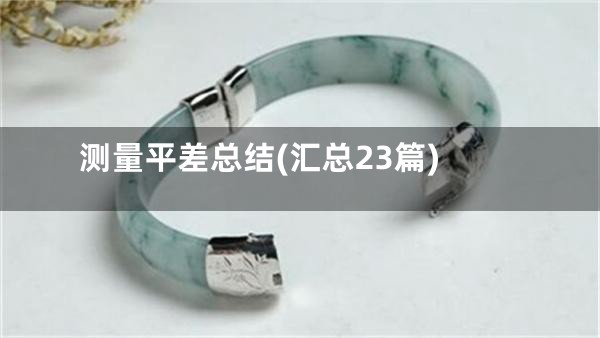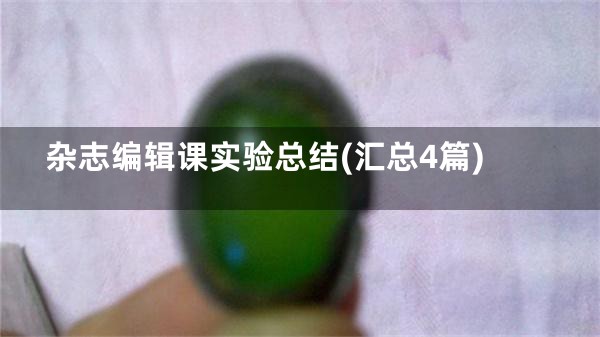who从句的用法总结 第1篇
As a middle school student,I don't have much free time,but I still have a lot of things to like listening to music and reading,so in my free time,I always listening to music and search the Inter for about 's a good way to relax always do some reading before go to always go to swimming after help me to keep healthy and do good to my the same as other students,I often watch TV in the evening,but I have to finish my homework first
who从句的用法总结 第2篇
两词都表示“希望”,但在用法上有相同和不同之处,不能随意互换。
一、相同之处
1.都可接不定式作宾语。
The children hope to do something for the old man.
这些孩子希望为这位老人做些事情。
We wish to see the film.
我们都希望看那部电影。
2.都能以某些代词作宾语。
You can't hope much from such people.
对于这样的人,我们的希望不能过多。
That's what you have wished.
那就是你所希望的。
3.都能与介词for连用,后接名词或某些不定代词,表示“希望得到”“祈求”。
Do you wish for anything better?
你希望得到更好的东西吗?
Do you hope for peace?
你希望和平吗?
4.都可与过去过完成时连用,表示本来想做而没做成。
I had hoped to come here, but I couldn't.
我本来希望来这里,但没能做到。
He had wished to finish it on time, but he didn't.
他希望按时完成这件事,但没有。
5.都用于It is / was to be…that的句型中。
It is to be hoped that she will get full marks in English.
希望她会在英语考试中得到满分。
It is to be wished that the problem will soon be solved.
希望这个问题很快会得到解决。
二、不同之处
1. wish作为及物动词,可接名词或代词作宾语,hope则不能。
Do you wish a pen or a book?
你要的是钢笔还是书?
2. wish能接双宾语表示祝愿,hope则不能。
I wish you success. 我祝你成功。
3. wish能接复合宾语,hope则不能。
I wish you to go with me.
我希望你同我一道去。
4. wish和hope都能接that引导的从句,但wish后的从句的谓语动词要用虚拟语气(动词用过去时,或过去完成时),hope则用所需要的时态。
I hope that he will win the game.
我希望他会赢得这场比赛。
I wish that I knew the answer.
我希望我知道这个答案。
I wish I had bought it yesterday.
我希望昨天买了它。
5. hope可与so或not连用,分别代替一个具有肯定和否定意义的宾语从句,以免重复,wish则不能。
-Will it be fine tomorrow?
-I hope so.
-Will it rain tomorrow?
-I hope not.
三、wish, hope都可作名词,可数或不可数均可,wish表示“愿望”“心愿”“祝愿”,hope表示“希望”。
1. My wish is to become a doctor.
我的愿望是当一名医生。
2. It is said that they have realized their wishes.
据说他们已实现了他们的愿望。
3. I have no (not much) wish to see him.
我并不(不大)想见他。
4. Send him my best wishes.
请代我向他致意。
5. Where there is life there is hope.
有生命就有希望。
6. There is a hope of success.
有成功的希望。
7. He has some hope (s) of success.
他有成功的希望。
who从句的用法总结 第3篇
写英语作文的时候,最好的方式是挑简单明了的句子写,用从句写的话一旦运用错误就会扣分,而用简单的句子就不会让老师跳出毛病,自然而然就会避免扣分. 这里简单跟楼主介绍一下状语从句,同位语,还有定句从句的区别,仅供参考:状语从句:一般作为先行条件,解释什么样的情况下发生什么样的事情,主要作为“条件”,一般放在句前,也有放在句子后面的,较少. 同位语:一般作为解释一个”词“,这个词通常为主语/宾语,也有定语,但是同位语的作用就是用来说明这个主语或者宾语处于什么状态,是什么样子等等. 定语从句:很显然,定语从句是用来做形容词的,它通常用来形容主语/宾语/或者一整个句子希望可以帮助楼主
高中从句有3大从句,分别为:状语从句,定语从句,名词性从句。
其中名词性从句又分为:同位语从句,表语从句,主语从句,宾语从句。
状语从句又分为:时间,地点,原因,结果状语从句。
比如, A girl who is named Jan .这就是一个简单的定语从句。
There is a house ,which is my home 这是个典型的非限制性定语从句再比如,I am crazy ,这是个简单的表语从句。
The girl is Chinese 这是宾语从句。
还有......上面这些都是很简单的句子,只要你一般写作文的时候不犯原则性错误,这些简单都可以试着用用。
I have a friend named YangYang. Her medium height, shapely, oval face, *** all eyes but great temperament. She is interested in singing and dancing. She has participated in the city's singing petition, won the first prize. She loves sports, like hiking fitness. She was a helpful person. Once she saw in the street an old lady fell on the road, she was sent to hospital after the old woman propped up their own money to grandma doctor, then quietly leave, even the name was left. Her favorite food is pasta, I always ask her to eat noodles.
以上就是关于英语各个从句,英语八大从句类型与用法总结图的全部内容,以及英语各个从句 的相关内容,希望能够帮到您。
who从句的用法总结 第4篇
v. 希望; 祝愿; 想要;
n. 希望; 愿望; 祝福; 希望的事;
wish的例句
1 She was sincere and genuine in her wish to make amends for the past
她真诚地希望弥补从前的过失。
2 If you wish to go away for the weekend, our office will be delighted to make hotel reservations
如果您想外出度周末,我们办事处将很乐意为您预订旅馆。
3 I don't wish to sound callous, but I am glad I wasn't here
我不想让自己的话听上去麻木不仁,但我真的很庆幸我当时没在这儿。
4 I wish I could do that
我希望我能做那件事。
5 We have all wished for men who are more considerate
我们都曾祈求能找到更加体贴的男人。
who从句的用法总结 第5篇
❶先行词既有人又有物
❷主句是which或who开头的特殊疑问句
of the books that had pictures was worth reading?
❸先行词是序数词或最高级(或前面有序数词/最高级修饰时)
❹先行词有every,each,no,some,the only,the very,the last,the same修饰
❺先行词是all,much,few,little,any,none,the one(共同点:有“唯一”或“全部”的概念,以致不可选择),something,everything,anything,nothing等不定代词或被这些词修饰时
me everything that you know.
❻先行词在主句中作表语,且关系代词在从句中也做表语(此时句子一般有类比的含义)
school is no longer the place that it used to be.
who从句的用法总结 第6篇
My grandpa is an old man who was born in 1924 and has ever attended the paign of Defending the Burma Road,which is a movement happened when he was about 20 years he joined the army in response to the call of our country,which had great influences on his life and learned to be strong-minded and is the thing that he usually taught me told me to learn to be a person who is unyielding and brave to face difficulties that others don't dare to.【公益慈善翻译团】真诚为您解答!...
who从句的用法总结 第7篇
wish的用法
真实状况 wish后
从句动作先于主句动词动作 现在时 过去时
(be的过去式为 were)
从句动作与主句动作同时发生 过去时 过去完成时
(had + 过去分词)
将来不大可能实现的愿望 将来时 would/could +
动词原形
I wish I were as tall as you. 我希望和你一样高。
He wished he hadn't said that. 他希望他没讲那样的话。
I wish it would rain tomorrow. 我希望明天下雨就好了。
2)Wish to do表达法。
Wish sb / sth to do
I wish to see the manager. = I want to see the manager.
I wish the manager to be informed at once. (= I want the manager to be informed at once.)
who从句的用法总结 第8篇
1、I hope we get there in time.
我希望我们及时到达那里。
2、They hope to form the new government.
他们希望组建新政府。
3、I hope you don't think I'm being too forward.
我希望你不要认为我太冒失。
4、I hope I never set eyes on this place again!
我希望永远不再见到这个地方!
5、Let's hope everything will go according to plan.
但愿一切都会按计划进行。
who从句的用法总结 第9篇
作为及物动词,可接名词或代词作宾语.
Do you wish a pen or a book?
你要的是钢笔还是书?
能接双宾语表示祝愿.
I wish you success.我祝你成功.
能接复合宾语.
I wish you to go with me.
我希望你同我一道去.
能接that引导的从句,从句的谓语动词要用虚拟语气(动词用过去时,或过去完成时).
I wish that I knew the answer.
我希望我知道这个答案.
I wish I had bought it yesterday.
我希望昨天买了它.
hope和wish的用法
两词都表示“希望”,但在用法上有相同和不同之处,不能随意互换。
一、相同之处
1.都可接不定式作宾语。
We wish to see the film.
我们都希望看那部电影。
The children hope to do something for the old man.
这些孩子希望为这位老人做些事情。
2.都能以某些代词作宾语。
That's what you have wished.
那就是你所希望的。
You can't hope much from such people.
对于这样的人,我们的希望不能过多。
3.都能与介词for连用,后接名词或某些不定代词,表示“希望得到”“祈求”。
Do you hope for peace?
你希望和平吗?
Do you wish for anything better?
你希望得到更好的东西吗?
4.都可与过去过完成时连用,表示本来想做而没做成。
I had hoped to come here, but I couldn't.
我本来希望来这里,但没能做到。
He had wished to finish it on time, but he didn't.
他希望按时完成这件事,但没有。
5.都用于It is / was to be…that的句型中。
It is to be hoped that she will get full marks in English.
希望她会在英语考试中得到满分。
It is to be wished that the problem will soon be solved.
希望这个问题很快会得到解决。
who从句的用法总结 第10篇
hope与wish的区别:
1、wish +宾+ to +动词原形表示命令,hope无此用法
例句:
I wish you to go. 我要你去。
2、hope后不能直接跟名词作宾语,可跟for +名词,表示可实现的'“希望”,wish虽也跟for +名词,但表示难实现的“愿望”.
例句:
I hope for success. 我希望成功.
I wish for a car. 我很想得到小汽车
3、hope和wish可跟that从句,但hope + that表示希望;
wish + that表示“愿望”,且从句动词用虚拟语气。
例句:
I hope you”ll be better soon .
I wish I were ten years younger .
4、wish可跟双宾语,hope则不能。
例句:
We wish you a happy New Year.
who从句的用法总结 第11篇
My Family I have a family which is not big, but warm. In my family there are three people who are my father, my mother and I. My father is a young man who works very hard in a hospital. He likes playing football, which is his hobby. He also likes to read novels which were written by famous writers. My mother is a young woman who works in the same middle school as I study in. She teaches maths in ourr school which is the best school in our city. She likes watchingTV plays which are acted by famous stars, such as Chen Daoming, Liu Xiaoqing and so on. I am a boy who studies a middle school. I am very clever. I like playing basketball which is my hobby. And I like watching NBA Games which are played by famous players. This is my family which is a warm and happy family.希望能帮到你,祝更上一层楼O(∩_∩)O有不明白的请继续追问,可以详谈嘛(*^__^*)...
who从句的用法总结 第12篇
In my life, sports play an important role. I am really fascinated in swimming. I first learnt to swim when I was 7 years old. I fell in love with thesport on the very first day. It bees a part of my life weekend, I go to the stadium near my home. I swim ice aweek. I was quite weak before I started to swim. Swimming makes mehealthy and now I go to hospital much less than before. I gotplenty of benefits from swimming. In fact, learning isn't an easything. But no pains, no gains. The hard work I had paid was worthbecause I gained a lot. In my opinion, sports are really enable me to live healthily and happily.
who从句的用法总结 第13篇
wish的过去式及其他时态:
过去式: wished
过去分词: wished
现在分词: wishing
wish的用法:
wish的用法1:wish的基本意思是“希望”“想要”,指对未曾达到、难以达到或不可能达到的目标极其渴望。wish还可作“祝愿”解。
wish的用法2:wish既可用作不及物动词,也可用作及物动词。用作及物动词时,后接名词、代词、动词不定式或that从句作宾语,从句中的谓语动词要用虚拟式。wish有时也可接双宾语,还可接以“(to be+) adj. ”、动词不定式或过去分词充当补足语的复合宾语。过去分词作宾语补足语时表示被动或完成意义。
wish的用法3:当表示实现的可能性不大的主观设想时,从句中的谓语动词不用一般现在时,而须用一般过去时; 当表示与过去的事实相反时,从句中的谓语动词不用一般过去时,而须用过去完成时或“could〔would〕+have ~ed ”结构; 当表示对未来的设想时,从句中的谓语动词要用“would〔could,might〕+动词原形”结构。
wish的用法4:wish引导的that从句中的主语是单数第一人称、第三人称或表示单数的名词词组时,其后的be既可以是was,也可是were。
wish的用法5:wish用作不及物动词时,常与介词for连用。
wish的用法6:wish是表示感情的动词,不用于被动结构。
wish的过去式例句:
1. Ellis evidently wished to negotiate downwards after Atkinson had set the guidelines.
埃利斯显然希望在阿特金森制定了指导方针后继续往下协商。
2. Grandmother felt free to order her about just as she wished.
奶奶毫不客气地随意支使她。
3. It hurt so badly he wished to cease to be.
他觉得疼痛难忍,恨不得死了算了。
4. He wished he could have helped her more than he did.
他真希望当初能给予她更多的帮助。
5. She messaged him saying she wished they were together.
她给他留言说希望跟他在一起。
6. I really could not have wished for a better teacher.
这个老师对我来说是再好不过的了。
7. We have all wished for men who are more considerate.
我们都曾祈求能找到更加体贴的男人。
8. He wished to live in amity with his neighbour.
他希望与邻居和睦相处。
9. There were the collaborators, who wished for a German victory.
有通敌者希望德国获胜。
10. Mary Ann wished he would just drop it.
玛丽·安希望他就不要谈论它了。
11. Claire wished she'd primed Sarah beforehand.
克莱尔真希望她事先指点过萨拉。
12. He wished it would end.
他希望这会终结。
13. He wished to join the army, but was rejected as medically unfit.
他想要参军, 但因体检不合格而未被批准.
14. He wished to be excused from his duties today.
他希望准许他今天不上班.
15. I have never been abroad, neither have I ever wished to go.
我从未去过国外, 我也从未想去.
who从句的用法总结 第14篇
wish的用法
1)用于wish后面的从句,表示与事实相反的情况,或表示将来不太可能实现的愿望。其宾语从句的动词形式为:
真实状况 wish后
从句动作先于主句动词动作 现在时 过去时
(be的过去式为 were)
从句动作与主句动作同时发生 过去时 过去完成时
(had + 过去分词)
将来不大可能实现的愿望 将来时 would/could +
动词原形
I wish I were as tall as you. 我希望和你一样高。
He wished he hadn't said that. 他希望他没讲那样的话。
I wish it would rain tomorrow. 我希望明天下雨就好了。
2)Wish to do表达法。
Wish sb / sth to do
I wish to see the manager. = I want to see the manager.
I wish the manager to be informed at once. (= I want the manager to be informed at once.)
Should 和 shall 有什么差别?
shall:
传统上,用于第一人称(I, we),表示将来时态,比如:I shall be there by ten o'clock.
但在现代英文中,尤其是美式英文中,可以用will替代。
2. 表示强烈的看法和意图,比如: You shall pass the exam.
这是老式、正式的用法。
3. 表示命令和告诫,或者法律和规则,比如:You shall not enter this room.
4. 在问句中表示提议和建议,比如:Shall we dance?
should:
表示义务、责任等,比如: You should help your friends.
表示愿望或者预期的事情,比如:It should be sunny tomorrow.
表示建议,比如:You should wear this dress.
表示可能性或者条件假设, 比如:Should you need any help (=if you need any help), call me anytime.
用于许多表示感情的形容词后的 that 从句中, 比如:It is astonishing that he should be so rude to you.
用于第一人称,表示礼貌的请求或接受, 比如:I should like more wine.
冠词的用法
冠词的用法
冠词是虚词,放在名词之前,用来说明名词指的人或事物。冠词有两种。 a(an) 叫不定冠词, the 叫定冠词。 a 用在辅音之前, an 用在元音之前。
1. 不定冠词的用法
(1) a 和 an 均用在单数名词之前,表示某一类人或事物。例如:
John is a student. Mary is an English teacher.
(2) 指某一类人或事物中的任何一个。例如 :
A steel worker makes steel.
Pass me an apple, please.
(3) 指某人或某物,但不具体说明何人或和物。例如:
A student wants to see you.
A girl is waiting for you outside.
(4) 表示 “ 每一 ” 的意思,相当于 every 。例如:
Take the medicine three times a day.
They go to see their parents once a week.
2. 定冠词用法
(1) 特指某(些)人或某(些)事物。例如:
The book on the desk is an English dictionary.
Beijing is the capital of China .
(2) 指说话人和听话人都熟悉的人或事物。例如:
Open the door, please.
Jack is in the library.
(3) 上文提到过的人或事物。例如:
Yesterday John's father bought him a new bike. The bike cost him 200 yuan.
(4) 表示世界上独一无二的事物。例如:
The sun rises in the east and sets in the west.
(5) 用在序数词和形容词最高级之前。例如:
Shanghai is the biggest city in China .
January is the first month of the year.
(6) 用在某些形容词之前,表示某一类人或事物。例如:
The nurse is kind to the sick.
We should take good care of the old.
(7) 用在某些专有名词之前和某些习惯用语中。例如:
the Great Wall, the Summer palace, in the morning, in the open air 等。
(8) 用在姓氏复数之前,表示 “ 某某一家人 ” , “ 某某夫妇 ” 。例如:
the Browns, the whites 等。
3. 不用冠词的情况
(1) 某些专有名词,抽象名词和物质名词前一般不用冠词。例如:
China, Canada, Japanese, glass, water, love 等。
(2) 名词前已有作定语用的 this, that, my, your, whose, some, any, no, each, every 等代词时,不用冠词。例如:
That is my cap.
I have some questions.
Go down this street.
(3) 复数名词表示一类人或事物时,不用冠词。
They are workers.
We are students.
(4) 称呼语前不用冠词,表示头衔和职务的名词前也不加冠词。例如:
I don't feel well today, Mother.
Bush was made president of the .
(5) 三餐饭的名称前,球类活动,学科和节目名词前,常不用冠词。例如:
I have lunch at home.
He often plays football after class.
We have English and maths every day.
(6) 在某些固定词组里,名词之前常不用冠词。例如:
By air, at night, at home, go to bed, go to school, on foot, from morning till night 等。
seem的用法
1. ~ (to sb) (to be) sth | ~ like sth,不用于进行时,涉及推断时用,意思为好像,似乎,看来。
例句:You seem happy.你看起来很高兴。
2. ~ to+动词的不定式 ,用以缓和语气时用,意思为感到好像,觉得似乎。
例句:I seem to have left my book at home.我大概是把书忘在家里了。
3. it seems | it would seem,表示不确切或客气时用,意思为看来好像,似乎。
例句: It would seem that we all agree.我们大家似乎都同意。
扩展资料:
seem,是一个动词,它的英式发音为[si:m],美式发音为[sim]。
它可以翻译为:似乎;好像,仿佛;装作;看来好像。
第三人称单数:seems
现在分词:seeming
过去式: seemed
过去分词:seemed
参考链接:百度翻译——seem
who从句的用法总结 第15篇
二、不同之处
1. wish作为及物动词,可接名词或代词作宾语,hope则不能。
Do you wish a pen or a book?
你要的是钢笔还是书?
2. wish能接双宾语表示祝愿,hope则不能。
I wish you success. 我祝你成功。
3. wish能接复合宾语,hope则不能。
I wish you to go with me.
我希望你同我一道去。
4. wish和hope都能接that引导的从句,但wish后的从句的谓语动词要用虚拟语气(动词用过去时,或过去完成时),hope则用所需要的时态。
I hope that he will win the game.
我希望他会赢得这场比赛。
I wish that I knew the answer.
我希望我知道这个答案。
I wish I had bought it yesterday.
我希望昨天买了它。
5. hope可与so或not连用,分别代替一个具有肯定和否定意义的宾语从句,以免重复,wish则不能。
-Will it be fine tomorrow?
-I hope so.
-Will it rain tomorrow?
-I hope not.
三、wish, hope都可作名词,可数或不可数均可,wish表示“愿望”“心愿”“祝愿”,hope表示“希望”。
1. My wish is to become a doctor.
我的愿望是当一名医生。
2. It is said that they have realized their wishes.
据说他们已实现了他们的愿望。
3. I have no (not much) wish to see him.
我并不(不大)想见他。
4. Send him my best wishes.
请代我向他致意。
5. Where there is life there is hope.
有生命就有希望。
6. There is a hope of success.
有成功的希望。
7. He has some hope (s) of success.
他有成功的希望。












